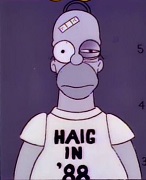- Adbot
-
ADBOT LOVES YOU
|

|
|
#
¿
May 14, 2024 18:54
|
|
- Budzilla
- Oct 14, 2007
-

We can all learn from our past mistakes.


|
How effective would set a of economic policies be?
There was (possibly untrue) report of some airlines requiring especially obese people to purchase two seats. How effective would a more universal set of those policies be?
I just remembered a choice article about Pacific Islanders a few years back in regards to obesity. Link to article.
quote:In Some Cultures, a Role for Shame in Addressing Obesity?
In the Cook Islands, a physician is changing a culture that sees some of the highest rates of obesity in the world. Some of his methods are inappropriate by American standards, but effective.
'
Dr. Hla Thein grew up in Burma and was educated, as are most young men, by monks. He learned English at a young age, went to medical school in Rangoon. He worked for the United Nations in Thailand with refugees from the Khmer Rouge and eventually settled in Fiji. He explicitly wanted to combat obesity, diabetes, and hypertension in the Pacific and moved to the Cook Islands to do so. He took a post that no other doctor wanted and moved to the isolated atoll of Pukapuka with a population of 450. On the three square-kilometer atoll, boats come only once every six months and planes only on government business. "Here," he says, "I have the perfect laboratory to combat obesity and associated non-communicable diseases.".....
Instead, Thein used methods congruent with the community. To set an example, he started a garden at his home -- planting cucumbers, lettuce, bok choy, and watermelons. He gathered all the hospital staff, nurses, and even the local dentist to assist in the building of his massive garden. At first, this seemed a strange use of hospital work time. Soon, however, villagers came and gathered to watch the hospital staff gardening. Children began asking for seeds. Before long, everyone had started a home garden. The gardens didn't last because of the salt spray, the sandy soil, and lack of regular access to seeds, but the seed had been planted. People wanted to eat cucumbers....
He also started shaming people.
Shame and ridicule are actually common ways to regulate behavior in small Pacific Island communities. He regularly said to his patients, "There is something wrong in a place where the parents are so fat and the children so skinny." He started monitoring what parents gave children for school lunch and posting it on the government notice board for everyone to see, and laugh at. Pretty soon shamed parents fed their children baked uto (sprouted coconut) instead of packaged instant noodles. This also meant that the parents ate the same healthier cooked food, and in smaller portions.
|
 #
¿
Nov 25, 2015 10:24
#
¿
Nov 25, 2015 10:24
|
|






